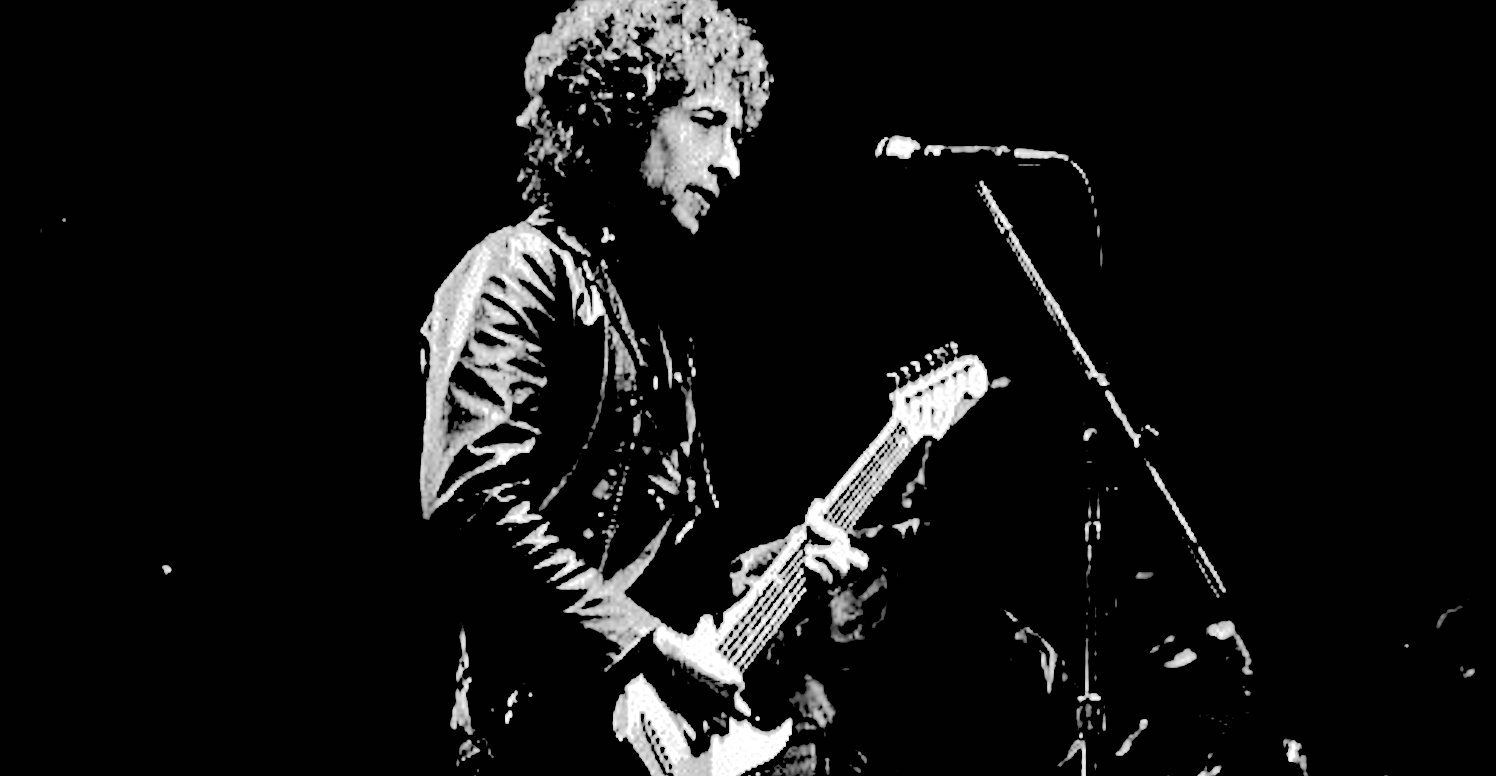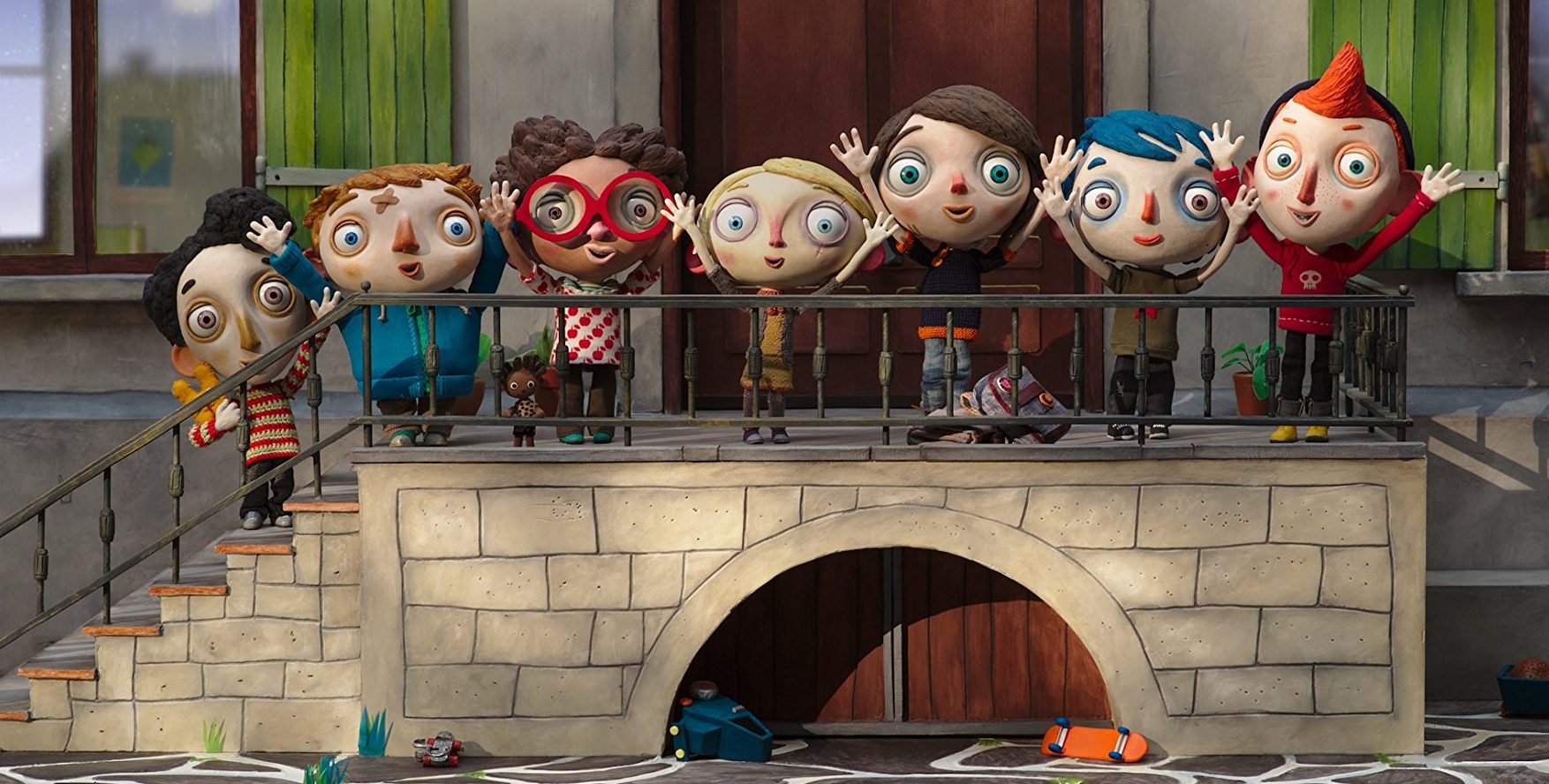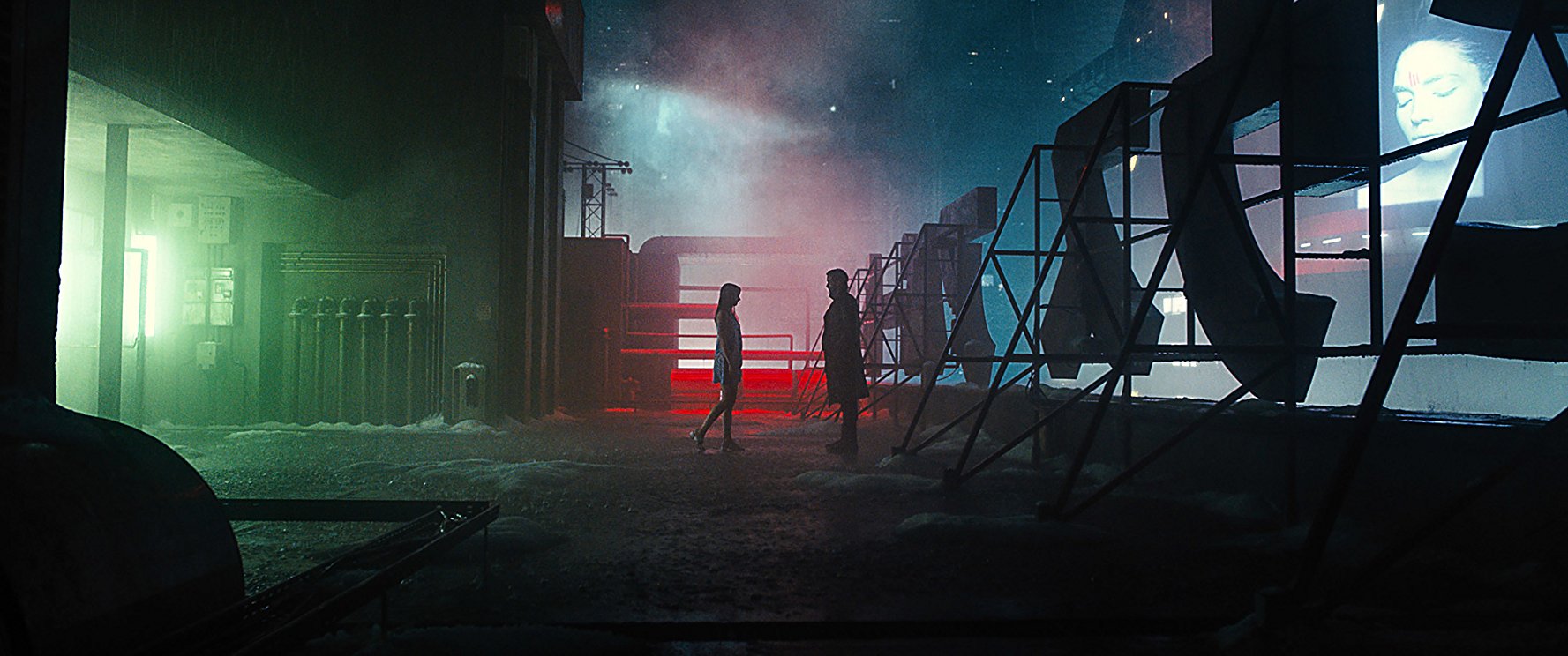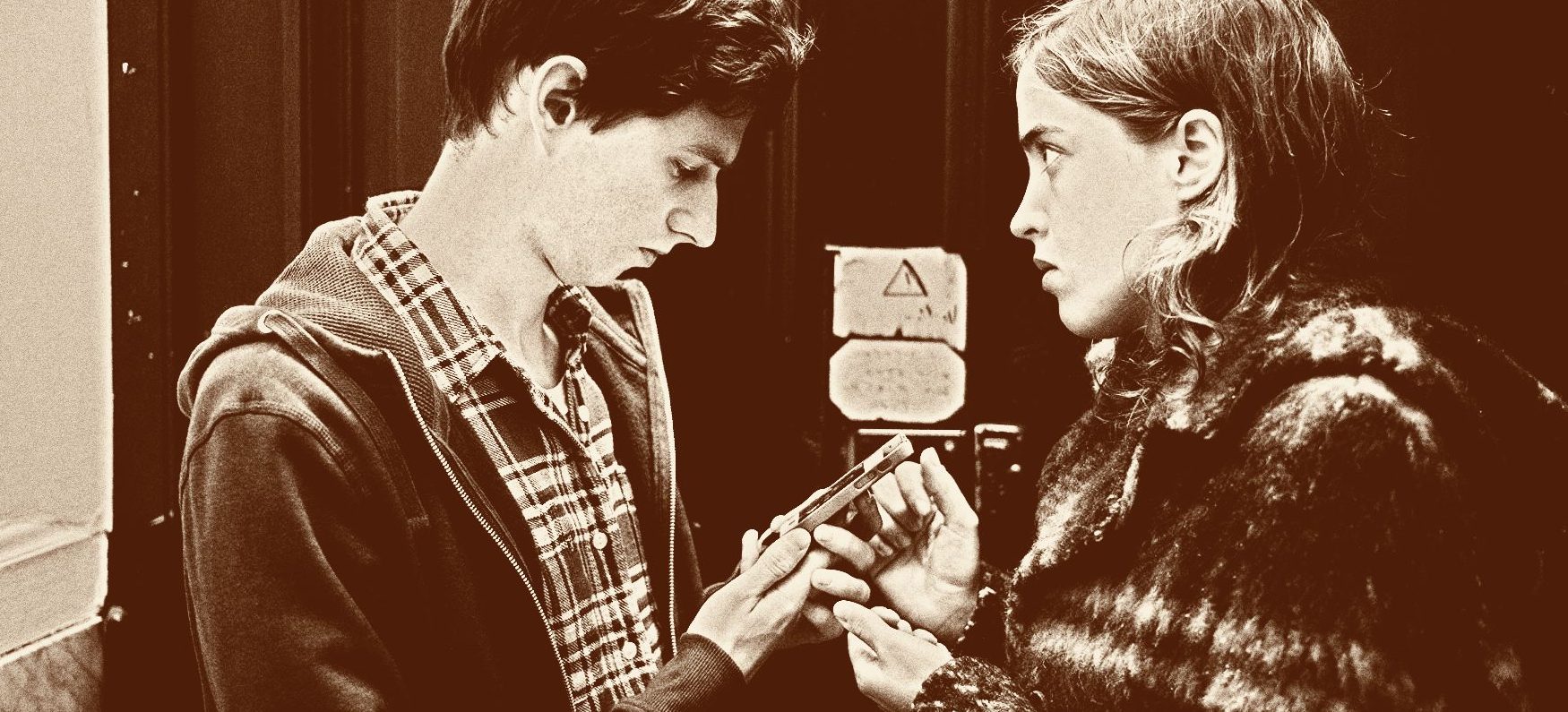Reflections on Harry Dean Stanton in Lucky
This morning, on the way to work, I thought through my first impressions of John Carroll Lynch's directorial debut: Lucky. It features the final performance — and an impressive one at that — for the great Harry Dean Stanton. Does the movie serve as a "victory lap" for Stanton?
Climb in, buckle up, and join me as I drive to work and think out lout. Listen here to "Reflections on Lucky."
Here's the trailer:
https://www.youtube.com/watch?v=2KLLkj84GAo
Slow Train Streaming
If you know the song, sing along:
And there's a slow
Slow train comin'
Comin' round the bend...
Bob Dylan's so-called "Christian phase" has been a much-maligned chapter of his history. And I don't understand it.
I've written about this before, defending his Gospel-focused albums as an important and impressive transformation of America's most significant singer and songwriter. I've argued that it wasn't a phase — that his work has evolved into a deeper and more nuanced expression of faith in poetry and imagination, one that doesn't limit itself to narrow religious vocabularies or reassure American Christians by remaining familiar and safe and focused on reassurance.
So I am thrilled at the prospect of hearing more about that startling season in which he embraced Gospel music and sang like a zealous prophet in the world's dying hour.
Lo and behold, here comes the bootleg series many of his fans have been dreaming about: Trouble No More – The Bootleg Series Vol. 13 / 1979-1981.
Selections are currently streaming on NPR First Listen.
Listen now, while it's free.
Blue reflections
On my drive to work at Seattle Pacific University, the morning after I introduced Krzysztof Kieslowski's film Three Colors: Blue to my class on Faith and Film, I decided to put my passion for this movie into words.
It was good practice: Tomorrow, I'm leading a discussion of the film, hoping to make new discoveries and prompt students toward their own epiphanies.
I recorded it for those of you who are interested in the film. So, put on your seat belt, because you're going to hear me talk about this movie all the way to work... including a brief stop at Trader Joe's. Here's "Reflections on Three Colors: Blue."
How cameras take control
In my new Faith and Film course at Seattle Pacific University, we're spicing up our post-movie discussions with some videos that train us to see more clearly just how filmmakers are using their cameras to influence our experience.
The more we understand how artists seek to capture our imaginations, the more discerning we can become about what they're hoping to accomplish, and the better we will be equipped for recognizing greatness.
Here are two videos I've made permanent parts of the syllabus. If you have a favorite video that taught you to look at movies a little differently, I encourage you to share!
https://youtu.be/GfqD5WqChUY
https://www.youtube.com/watch?v=5V-k-p4wzxg
My Life as a Zucchini (2017)
This weekend, I drove up to Whidbey Island for a reunion of alumni of the Seattle Pacific University MFA in Creative Writing program.
While I was there, I found myself talking with friends about the most memorable movies we'd seen so far this year. In particular, we talked about a new article at Good Letters, written by our fellow SPU MFA graduate Nick Olson, that focused on Denis Villeneuve's Blade Runner 2049 and Darren Aronofsky's mother!
One of them told me about an exhibit happening in Portland, Oregon, right now focused on the stop-motion animated films produced by Laika. We reminisced fondly about Coraline and Kubo and the Two Strings. That's when I started talking about another recent film of hand-crafted animation, one that I only saw a few days ago and have been thinking about ever since.
On the drive home, I decided to tell you about it as well. Join me for a few moments on my sunny drive from the island to the ferryboat, and I'll tell you why I'm excited about this film.
Here are my reflections on "My Life as a Zucchini."

Blade Runner 2049 (2017)
"More Human Than Human."
"That is our motto," said Tyrell, head of the android-designing Tyrell Corporation.
And so began Blade Runner, a movie in which our human hero, Deckard the Replicant Hunter, began to wonder how human he really was, and in which his targets — ferocious replicants gone rogue — demonstrated their capacity to be vengeful Frankenstein monsters of humanity's own making and their capacity to grasp the concept of grace, something that humankind had apparently forgotten.
[This is a review in progress. Check back for revisions and expansions to this draft.]
In that sense, it's easy to imagine that the immeasurable influence of Ridley Scott's 1982 masterpiece played a part in the composition of U2's early '90s hit "Even Better Than the Real Thing." I suspect that they were consciously thinking about television, pornography, and consumer culture's inclination to sell us trouble-free substitutes for the good-but-challenging things that God intended. Replicants were the culmination of humankind's desire to be gods, to have slaves, and to find living beings that they could exploit to their heart's content.
Now, more than 30 years after that original, groundbreaking work of science fiction filmmaking, one based on the innovative imagination of Philip K. Dick, we have a sequel directed by Denis Villeneuve with a screenplay and written by Hampton Fancher (who co-wrote the original with David Webb Peoples).
And like Replicants themselves, it is designed to please its customers. It does so by serving up all of the familiar Blade Runner things that we like: flying cars, that overpowering Vangelis soundtrack, a grim and bloodied hero with an identity crisis, sexy synthetic faux-females, brutal hand-to-hand combat in the rain, fleeting glimpses of characters from the original, and machines that confirm our sinking suspicion that humanity has forgotten its greatest distinction—love.
Moreover, it understands that Blade Runner's distinctiveness was in avoiding action-movie cliches and focusing instead on Big Ideas. So Blade Runner 2049 has some of those too. But it introduces them in a very different cinematic context than the original, one in which we are surrounded by ambitious science fiction films about artificial intelligence.
As a result, this film — we might call it Blade Runner: Even Better Than the Real Thing — plays like a variation on a popular genre, joining recent hits like Ex Machina and Her and Alien: Covenant in the game of showing us the dangers of manufacturing subordinate entities.
As a sort of Blade Runner Replicant, 2049 comes about as close as I can imagine a movie coming to succeeding as a worthy sequel. It's an immersive experience, often persuading us that this is, indeed, the same horrific future in which Deckard and Roy Batty fought it out in the rain. The cast is outstanding. The music is, at its best points, reminiscent of Vangelis's original score, and, at worst, just a variation on the standard-issue percussive/concussive style of Christopher Nolan's soundtracks. The story takes us to new locations, and wrestles with new twists on old questions.
Nevertheless, it cannot avoid the inevitable pitfalls of any Blade Runner sequel. And that is because the greatness of the original is due to its perfect limitations, its perfect restraint, its refusal to tell us any more than we needed to know.
I mean, for the love of all things holy — Blade Runner was the last Great Singularity in the world of science-fiction. It was a perfect snow globe. And any sequel that explores that particular narrative further expands the circumference of this big-screen world, placing that original snow globe within a bigger snow globe, which inevitably distances us from its perfection. Blade Runner's greatness was in its completeness, how everything contributed to the integrity of the whole. The origami unicorn, for crying out loud. Have we learned nothing from expanding on Alien? 2001: A Space Odyssey? Etc., etc., etc.?
Expanding Deckard's story — this was always Deckard's story, and the new blade runner played by Ryan Gosling isn't interesting enough to change that — beyond what was originally established makes it more difficult for the audience (well, this audience, anyway) to suspend disbelief. The original worked for me because Deckard was just a cop and Rachel just a high-end Replicant that Tyrell used to show off. It was Chinatownin Space. As moviegoers, we revere the two of them for their everyman/ suffering-hero qualities as they discover things that show them their dark and troubling world is far more troubling than they'd realized. They have been born into an unjust cosmos, exploited, pushed around, bamboozled, led astray. All we want for them is escape and some sweet relief.
But this movie, like the original's reverent fans themselves, makes giants of them — characters of grand religious significance. There will be no escape for Deckard and Rachel. They are caught by a power more insufferable than Tyrell's corporate tyranny or the law's brutal prejudice. Though all they want is to ride off into the noir sunset with grim Chinatown looks on their faces, they now discover they've been caught by The Power of MythTM. And that means they are Important on a larger scale.
This has the effect of weakening what made me care for these two characters in the first place. It takes what was originally a solid science-fiction story and begins to turn it into a mythology of gods.
As a result, in spite of Fancher's role here, this will never feel to me like something more than fan fiction written by the overly reverent. If I have to accept it as "canon," then the whole affair is, in my opinion (and as I feared), diminished.
It doesn't help that Harrison Ford, for all of the emotion that he brings to this performance (he "shows up" for this, as NPR's Glen Weldon put it), doesn't remind me of Deckard. At all. He reminds me of, well, Grumpy Old Man Harrison Ford, which is pretty much the only Ford we see anymore.
Still, there is much to admire here. Deakins, of course. Gosling is just good enough to be interesting. Carla Juri, one of the most interesting young actresses going right now, gives this chapter a surprisingly note of human tenderness. And the film's bold venture into the new App-droid Genre (Her, Ex Machina) gives the film its most unnervingly fascinating turns, even if they feel more like they belong in Ex Machina 2 than Blade Runner 2.
And it sets up Villeneuve's next film very neatly with a big-reveal scene that feels like something right out of Dune.
Also:
Jared Leto is not scary. Which only makes his character's unnecessary and disturbingly graphic scenes of violence toward women that much more frustrating.
Carolyn Forché on the Image Podcast
The new episode of the Image podcast features an interview with the poet and human rights advocate Carolyn Forché. Here's the summary:
At the Glen Workshop in August, Image editor Greg Wolfe recorded a nearly hour-long conversation with poet and social activist, Carolyn Forché. Hailed not only for her exquisite poetry but also for her work in promoting greater awareness of “the poetry of witness,” Forché is at once gentle and passionate. Over the course of the conversation she ranges over a variety of topics, from her teaching style to the meaning of “presence” to memorable stories of her friendships with figures like poet Czeslaw Milosz and martyred El Salvadoran bishop, Oscar Romero—about whom she is writing in a new memoir.
Check out other recent episodes here, featuring Paul Willis, Harrison Scott Key, Scott Teems, Gareth Higgins, Gina Ochsner, Richard Rodriguez, and, for some reason... me!
In other Image-related news, check this out: They're publishing Flannery O'Connor's college journal!
I'm Blade-running behind
Good news: Anne and I are celebrating our anniversary with a much-needed break from work.
Bad news: That means that I'm on the road during the opening weekend of Blade Runner 2049, a sequel to one of my ten favorite films of all-time.
No regrets. Anne and I have been looking forward to this getaway for months.
And I should be able to catch Denis Villeneuve's much-anticipated, much-dreaded movie sometime in the next several days.
But since I'm eager to serve those of you who have questions about the movie, I'll interrupt my anniversary adventures to provide you with some substantial reading.
Here are some reviews that I haven't read closely. (For me, the element of surprise is one of the most valuable aspects of moviegoing.) Why am I recommending them? I respect the minds that made them.
Alissa Wilkinson at Vox:
...it’s not mere fan service; the film tries very hard to sustain interest with new characters and developments that draw on the past without being handcuffed to it, throughout its sometimes ponderous 163-minute runtime.
But far too often that attempt to be interesting fails.
Joel Mayward at Cinemayward:
Deliberately paced, with a strong sense of atmosphere and compelling visuals, this is a sequel which builds upon the original foundation without ever quite surpassing it.
Brian Tallerico at RogerEbert.com:
...one of the most deeply philosophical and challenging sci-fi films of all time, a movie that never holds your hand as it spirals the viewer through its gorgeous funhouse of the human soul.
David Ehrlich at Letterboxd:
It’s the first Denis Villeneuve film to be boring.
Josh Larsen at LarsenOnFilm:
2049 is a worthy successor, a moody, broody visual feast that taps into our unease about the advent of artificial intelligence—and the questions of what it means to be alive that will inevitably come with it.
Scott Renshaw at Salt Lake City Weekly:
As many different ways as there are to make a sequel—and Blade Runner 2049 is very good at some of them—it helps to pick one and go with it, rather than try to be every kind of sequel at the same time.
Check back for more...
The Dardennes speak!
I can't help but envy my friend and moviegoing mentor Darren Hughes, who had the opportunity recently to interview Jean-Pierre and Luc Dardenne, two of the world's greatest living filmmakers, about their latest film: The Unknown Girl.
I reviewed it a while back — it's easily one of my favorites of 2017, and is currently playing in a limited theatrical release in the U.S.

Check out Darren's revealing conversation with the masters responsible for so many Cannes-award-winning films, including The Son (Les Fils), a film I love so much that I try to find room for it in every film class I teach.
And — no surprise here — to listen to things they say about their films, even things they say casually, is to learn to pay attention in a new way. For example, this, from Jean-Pierre:
For the kinds of films we make, we have to have our ears open to what is happening in the world, what is happening around us. And we also have to listen to our characters. When we create characters we do not watch them from above. We try to be in tandem with them while they’re going through the experience. Our characters are not puppets that we’re manipulating from above.
The Dardennes, all along the way, have been teaching us how to see one another by striving to see their characters, scenarios, and worlds as clearly and as humbly as they can.
"But then I listened..."
A close friend of mine from college, who I follow on Facebook, has contributed a substantial response to the last year's controversy regarding those professional athletes who kneel during the National Anthem. (His post is currently public, so you can see that I'm not making this up.)
His perspective is worth reading and sharing. He has a long history of service in the U.S. military—21 years—and has served as a prosecutor recently as a Judge Advocate for the U.S. Army. As long as I've known him (more than 25 years), he's been a conservative voice that I admire and respect. His words here are powerful and demonstrate great discernment. Feel free to share this with your own social media community.
I proudly fly the American flag in front of my home. I wear it with pride on my right shoulder of my uniform. I always stand at attention for the anthem, whether I'm in uniform or not. If I'm outside in uniform, I salute. If I'm civilian clothing, I put my hand over my heart.
I was bothered by the kneeling football players last year at first. When Bronco linebacker Brandon Marshall took a knee it bugged me. From my perspective, he, Kaepernick, and others should have showed respect and made their point some other way.
But then I listened to what they had to say.
I realized they were not attempting to disrespect the flag, the anthem, or the country. In essence, they were doing what we often see players do when a fellow Soldier is hurt - they take a knee to show solidarity with the injured. Those taking a knee during the anthem were saying that our country is injured, that when there is injustice, then taking a knee is appropriate.
Consider that we often fly flags at half-staff when we honor someone who died. It does not diminish the flag to do so.
These players are not burning the flag out of hate or ignorance. They are not stepping on it just to get attention. They are not laughing and ignoring the flag or anthem while it plays on TV while they are hanging out in a bar. They are not, in my opinion, being disrespectful to the flag. In fact, they arguably are respecting it and the country it stands for by peacefully calling out what they see, and what likely is, a national problem of injustice.
How many young black men must die or be incarcerated for a problem to be addressed by us all? The BLM movement is not about other lives not mattering, it is a cry that, too often, black lives do not matter enough. I think we could benefit by listening more and finding offense less. And that is what the players taking a knee hope to have happen.
Brandon Marshall did not just take a knee out of ignorance or hatred. He turned it into a means to promote action, going on to meet with Denver Police Chief to discuss issues relating to the use of force. He worked with youth in schools to help make a difference at the ground level. He eventually determined that he had brought attention to what was an important issue and he stood again. Others did also, but not everyone. For many, the issue remains a problem not adequately addressed.
But now we have a President who has made the kneeling of a few players, I believe all of them Black, into a partisan political issue. If it wasn't a partisan push, he wouldn't have started this line of attack at a partisan campaign event for an Alabama Senate election. He has continued to push this because it gets his base on fire they will then ignore the underlying issues that give rise to the actions of those players and it galvanizes them to line up for him and it helps to equate loyalty to country to loyalty to him personally.
Using this issue as an attack on patriotism for political purposes does disrespect the flag and the freedoms it represents.
Coming back to my initial point about my respect for the flag as a Soldier (and a citizen), I am also bothered now at the implication that somehow kneeing during the anthem shows disrespect for me or any other Soldier.
It does not.
You don't stand for the anthem to honor Soldiers. You stand to respect the freedoms and liberty that our Country is founded on, or perhaps kneel to show dismay that such freedoms and liberties may not be equally shared by all. By now arguing, as Trump and his team are doing, that the players who kneel are disrespecting troops is to further politicize the anthem and the military. It is offensive to have our sacrifice be used in this manner to simply make political points. Those in uniform are not window dressing for partisan political snark.
I will not be kneeling during the anthem, not now, not ever. I will continue to teach my kids to stand with respect. That flag represents the best our Nation aims to be, our finest ideals. It also reminds me personally of the sacrifice of those who have died for the nation and whose coffins are draped with this flag. But I can also respect the decision to kneel as a visible and non-violent means to bring attention to injustice.
I respect what Kaepernick and Marshall and many other players have done even while wishing they could have done so in a different manner simply to have avoided the perception by some that they were disrespecting the flag directly or the military who fight with that on their shoulder. But they pushed a conversation through peaceful actions which needed to be had. They demonstrated their concerns for injustice. It was an appropriate action to make their points. And this past weekend, as we watched the President make kneeling football players into his top priority I applaud the actions of those NFL players, coaches, and owners who pushed back and would not let the president bully them or demean their actions.
God bless this great Nation and the Constitution we have established which seeks to protect our Right to Life, Liberty, and the Pursuit of Happiness. God bless those who selflessly serve this country and our communities, whether they are wearing a military uniform, a police uniform, a firefighter's uniform, or standing in front of a class teaching our children. And bless those who peacefully seeks to raise awareness about injustice and who seek to help us all better confront such injustice in order to better achieve the promise of freedom and justice for all.
I am grateful for my friend's contribution to this conversation.
I am also grateful for this, from Dr. Theodore R. Johnston, who, on Twitter, reminds us that Colin Kaepernick did not #TakeAKnee out of disrespect, but because he was advised to do so by military veterans who explained that this would be a respectful form of protest.













